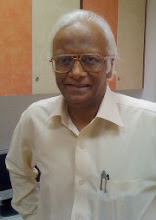MOST TALKED ABOUT BOOKS
 Some authors are more famous than their books, but some books overtake their authors. Books by Amartya Sen and Shashi Tharoor are read for what they are than for any other reason. Sen’s Idea of Justice and Tharoor’s Shadows across the Playing Field are a ‘must’ read.
Some authors are more famous than their books, but some books overtake their authors. Books by Amartya Sen and Shashi Tharoor are read for what they are than for any other reason. Sen’s Idea of Justice and Tharoor’s Shadows across the Playing Field are a ‘must’ read.
One billion Indians and 30 millions of injustice cases pending! The tiny state of Manipur has 10000 cases are pending in the Guwahati High court!
That’s not all. The National Human Rights Commission receives more than 75,000 complains a year; the National Crime Bureau registered 27,000 cases of violence against Dalits in 2006, 32,461 cases of murders, 19348 rapes, 7618 dowry death and 36617 molestation cases.
Amartya Sen speaks on the land acquisition by the West Bengal government for Nano plant. He thinks acquisition should be the last resort because while it may be justified as a greater good, when it benefit some and costs others, then the question of what you are going to do for those paying the price arises.
In a society where agriculture is the main employer, land is what you rely on. When you are poor, your life is insecure and you don’t want to be told that your life will go much better if you give up your land. It is not just a sentimental attachment, but rather it’s the thought that “my god! This is the basis on which I live.”
He was supportive of Bengal’s industrialization but they made two mistakes. More public discussion would have helped alleviate the fear for those for whom there would be some loss involved. Basic policy was right. Without industry West Bengal would continue to remain poor, and even if a new government comes, the people who come in will face exactly the same problem. And having created a situation where the whole industrialization process was seen with a sense of suspicious then you have to face the question that what are you going to do? To leave the West Bangle to its poverty or to face the anger of the people was the question?
Justice is a complex idea, but it is important to understand that justice has much to do with everyone being treated fairly. The leading political philosopher, John Rawls, neglects a couple of important connections. One neglect is the central recognition that a theory of justice has to be deeply concerned with how to reduce injustice in the world, rather than only with the identification of what a hypothetical “perfectly just society” would look like.
Second, analysis of justice has to pay attention to the lives that people are actually able to lead, rather than exclusively concentrating only on the nature of “just institutions.” In India, as anywhere else, we have to concentrate on removing injustices that are identifiable and that can be remedied.(Courtesy: G.S. Oinam)
 The story of the turbulent cricketing relations between India and Pakistan has been told by Shashi Tharoor and Shaharyar Khan who make an instant cocktail of love of the game and diplomacy. Shashi Tharoor, whose comprehensive, entertaining and hard-hitting analysis of sixty years of cricketing history displays a Nehruvian commitment to secular values, which rejects sectarianism in sport in either country. Shaharyar Khan, a former Pakistan foreign secretary, writes compellingly of his pivotal role as team manager and then chairman of the Pakistan Cricket Control Board at a time when cricket was in the forefront of d’ tenet between the two countries.
The story of the turbulent cricketing relations between India and Pakistan has been told by Shashi Tharoor and Shaharyar Khan who make an instant cocktail of love of the game and diplomacy. Shashi Tharoor, whose comprehensive, entertaining and hard-hitting analysis of sixty years of cricketing history displays a Nehruvian commitment to secular values, which rejects sectarianism in sport in either country. Shaharyar Khan, a former Pakistan foreign secretary, writes compellingly of his pivotal role as team manager and then chairman of the Pakistan Cricket Control Board at a time when cricket was in the forefront of d’ tenet between the two countries.
The two authors trace the growing popularisation of cricket from the days of the Bombay Pentangular to the Indian Premier League. They show how politics and cricket became intertwined and assess the impact it has had on the game. The book is a celebration of the talent of the many great cricketers who have captivated audiences on both sides of the border. If politics and terrorism can at times stop play, the authors believe that cricket is also a force for peace and they look forward to more normal times and more healthy competition.
 Jinnah simply refuses to die! When he has ardent fans like L K Advani and now Jaswant Singh, immortality is assured for Jinnah. Singh’s book is a roaring success in Pakistan and even in India for reasons of curiosity. Singh should privately thank Rajnath Singh and Advani for making his book a controversial sell.
Jinnah simply refuses to die! When he has ardent fans like L K Advani and now Jaswant Singh, immortality is assured for Jinnah. Singh’s book is a roaring success in Pakistan and even in India for reasons of curiosity. Singh should privately thank Rajnath Singh and Advani for making his book a controversial sell.
 Some authors are more famous than their books, but some books overtake their authors. Books by Amartya Sen and Shashi Tharoor are read for what they are than for any other reason. Sen’s Idea of Justice and Tharoor’s Shadows across the Playing Field are a ‘must’ read.
Some authors are more famous than their books, but some books overtake their authors. Books by Amartya Sen and Shashi Tharoor are read for what they are than for any other reason. Sen’s Idea of Justice and Tharoor’s Shadows across the Playing Field are a ‘must’ read.One billion Indians and 30 millions of injustice cases pending! The tiny state of Manipur has 10000 cases are pending in the Guwahati High court!
That’s not all. The National Human Rights Commission receives more than 75,000 complains a year; the National Crime Bureau registered 27,000 cases of violence against Dalits in 2006, 32,461 cases of murders, 19348 rapes, 7618 dowry death and 36617 molestation cases.
Amartya Sen speaks on the land acquisition by the West Bengal government for Nano plant. He thinks acquisition should be the last resort because while it may be justified as a greater good, when it benefit some and costs others, then the question of what you are going to do for those paying the price arises.
In a society where agriculture is the main employer, land is what you rely on. When you are poor, your life is insecure and you don’t want to be told that your life will go much better if you give up your land. It is not just a sentimental attachment, but rather it’s the thought that “my god! This is the basis on which I live.”
He was supportive of Bengal’s industrialization but they made two mistakes. More public discussion would have helped alleviate the fear for those for whom there would be some loss involved. Basic policy was right. Without industry West Bengal would continue to remain poor, and even if a new government comes, the people who come in will face exactly the same problem. And having created a situation where the whole industrialization process was seen with a sense of suspicious then you have to face the question that what are you going to do? To leave the West Bangle to its poverty or to face the anger of the people was the question?
Justice is a complex idea, but it is important to understand that justice has much to do with everyone being treated fairly. The leading political philosopher, John Rawls, neglects a couple of important connections. One neglect is the central recognition that a theory of justice has to be deeply concerned with how to reduce injustice in the world, rather than only with the identification of what a hypothetical “perfectly just society” would look like.
Second, analysis of justice has to pay attention to the lives that people are actually able to lead, rather than exclusively concentrating only on the nature of “just institutions.” In India, as anywhere else, we have to concentrate on removing injustices that are identifiable and that can be remedied.(Courtesy: G.S. Oinam)
 The story of the turbulent cricketing relations between India and Pakistan has been told by Shashi Tharoor and Shaharyar Khan who make an instant cocktail of love of the game and diplomacy. Shashi Tharoor, whose comprehensive, entertaining and hard-hitting analysis of sixty years of cricketing history displays a Nehruvian commitment to secular values, which rejects sectarianism in sport in either country. Shaharyar Khan, a former Pakistan foreign secretary, writes compellingly of his pivotal role as team manager and then chairman of the Pakistan Cricket Control Board at a time when cricket was in the forefront of d’ tenet between the two countries.
The story of the turbulent cricketing relations between India and Pakistan has been told by Shashi Tharoor and Shaharyar Khan who make an instant cocktail of love of the game and diplomacy. Shashi Tharoor, whose comprehensive, entertaining and hard-hitting analysis of sixty years of cricketing history displays a Nehruvian commitment to secular values, which rejects sectarianism in sport in either country. Shaharyar Khan, a former Pakistan foreign secretary, writes compellingly of his pivotal role as team manager and then chairman of the Pakistan Cricket Control Board at a time when cricket was in the forefront of d’ tenet between the two countries.The two authors trace the growing popularisation of cricket from the days of the Bombay Pentangular to the Indian Premier League. They show how politics and cricket became intertwined and assess the impact it has had on the game. The book is a celebration of the talent of the many great cricketers who have captivated audiences on both sides of the border. If politics and terrorism can at times stop play, the authors believe that cricket is also a force for peace and they look forward to more normal times and more healthy competition.
 Jinnah simply refuses to die! When he has ardent fans like L K Advani and now Jaswant Singh, immortality is assured for Jinnah. Singh’s book is a roaring success in Pakistan and even in India for reasons of curiosity. Singh should privately thank Rajnath Singh and Advani for making his book a controversial sell.
Jinnah simply refuses to die! When he has ardent fans like L K Advani and now Jaswant Singh, immortality is assured for Jinnah. Singh’s book is a roaring success in Pakistan and even in India for reasons of curiosity. Singh should privately thank Rajnath Singh and Advani for making his book a controversial sell. 


 RUDRANI CHATTORAJ
RUDRANI CHATTORAJ
